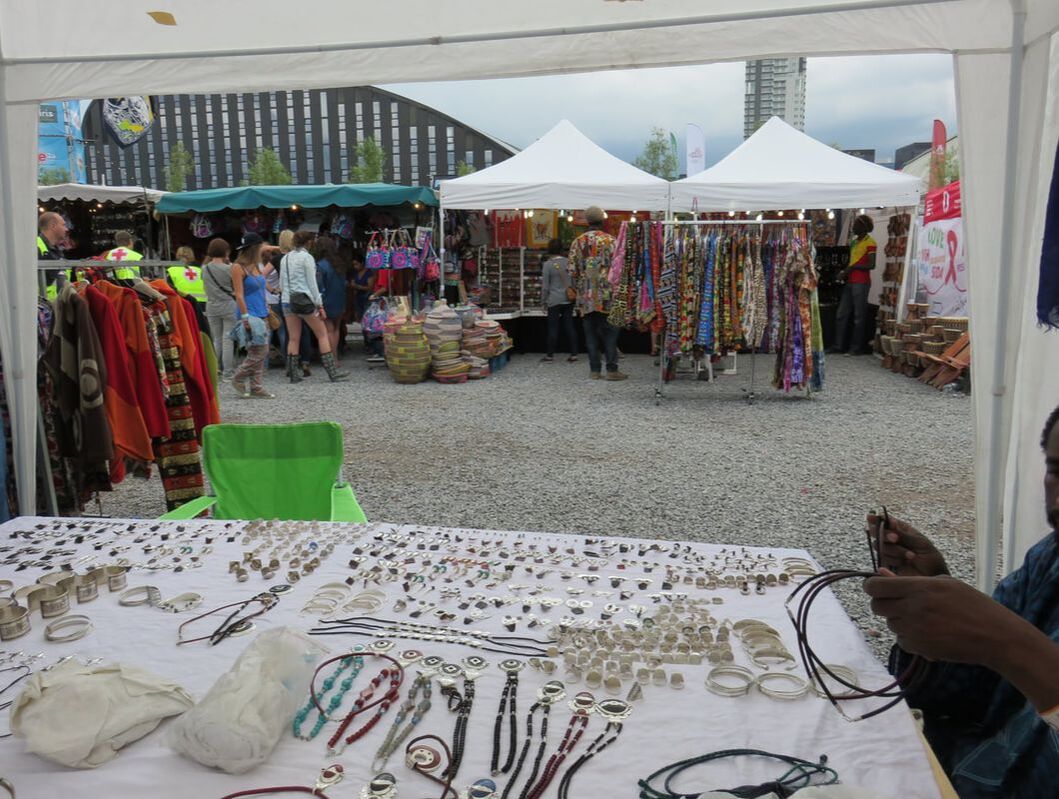|
|
|
Bermo carries my two year old son on one shoulder as we stroll down the main street in Antwerp, the beautiful medieval city in Belgium. My son uses Bermo’s soft turban as a place to rest his head, struggling to keep his eyes open. The photographer that follows the two of them in an attempt to get his best shot is really disturbing in his intensity and he has not even asked if he can take a photo. Bermo, used to being shown such excitement, pretends simply to ignore him. Bermo is not a celebrity as one might expect but a migrant worker from Niger that in his everyday life back home moves between the pastoral area and the city, where he struggles to make a living. Here I suspect that the combination of his clothing and dark skin, as well as the white body of my son, is arousing interest. While this particular event was rather extreme and took place prior to the so-called ‘crisis of migration’ in Europe, I have seen time and again WoDaaBe being perceived as belonging to the slot of the ‘exotic others’.
In my Identities article, ‘Global citizens, exotic others, and unwanted migrants: mobilities in and of Europe’, I focus on those portrayed as exotic to ask larger questions about otherness in Europe in the present. What kinds of bodies are welcomed in Europe that, after all, has for the last few years been characterised by large headlines proclaiming an ‘invasion’ of people from Africa into Europe? These depictions have often intersected with racialised narratives of Muslims and asylum seekers as threats, simultaneously criminalising and reifying these heterogenous categories. My article is based on ethnographic research in Belgium that consisted of brief visits conducted over a long period of time, wherein I participated in the life of WoDaaBe migrant men, as well as in the lives of other migrants from Niger in precarious positions. Some of these individuals I knew going on 20 years, having met them a long time back, while undertaking my two-year long PhD fieldwork in Niger.
My article asks critical questions about mobility where cosmopolitanism has long been hailed as a European value and a signature marker of the globalisation processes that the global south often prides itself on. However, looking at cosmopolitanism through the lens of precarious migration shows that not all mobilities are seen as deserving to be categorised as such. Rather, mobility of those from the global south to the global north – primarily on the part of those seeking employment – is not thought of in such a context.
In sharp contrast to some other ethnic groups from Niger, WoDaaBe can travel relatively easily to Europe, selling Tuareg artisanry objects marked as indigenous. What makes this possible is that WoDaaBe have a special place in the colonial imagination, where colonial narratives tried to distinguish them from other ethnic groups in Niger by enshrining them as less ‘black’ and culturally more interesting. This was not unique to WoDaaBe, of course, but pastoral people especially were often romanticised in colonial imaginations. In the present, the interest in WoDaaBe and other groups that have been refashioned as ‘indigenous’ still revolves around ideas of cultural purity and their position as different and exotic. The WoDaaBe that I spoke to during my research have thus been able to capitalise on this interest by embarking on short trips to Europe, aided by European friends whom they earlier met in Niger as tourists or expatriates, who aid the WoDaaBe both by providing short term visas and lodging. As long as these men mark themselves as ‘exotic others’ – with the category exotic resting on colonial imaginations – they are not assigned to the ‘threatening migrant’ category but rather come to be seen as constituting a part of European cosmopolitan experiences. My article highlights how identification as ‘exotic others’ signifies particular and monumental acceptance into the space of Europe while the categories of the migrant and the Muslim are sources of exclusion. When we think about cosmopolitanism, it is necessary to think critically about who is allowed mobility, for what reasons, and why.
Blog post by Kristín Loftsdóttir, University of Iceland, Iceland
Read the full article: Loftsdóttir, Kristín. Global citizens, exotic others, and unwanted migrants: mobilities in and of Europe. Identities: Global Studies in Culture and Power. DOI: 10.1080/1070289X.2016.1233879
0 Comments
Your comment will be posted after it is approved.
Leave a Reply. |
|
Explore Identities at tandfonline.com/GIDE |
|
The views and opinions expressed on The Identities Blog are solely those of the original blog post authors, and not of the journal, Taylor & Francis Group or the University of Glasgow.

